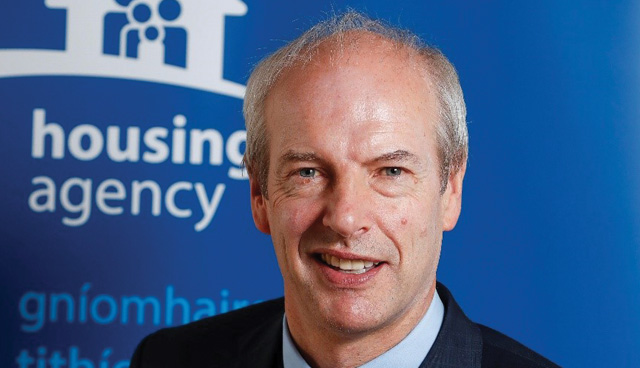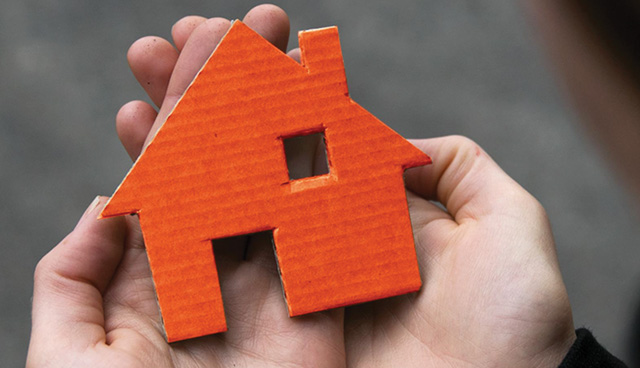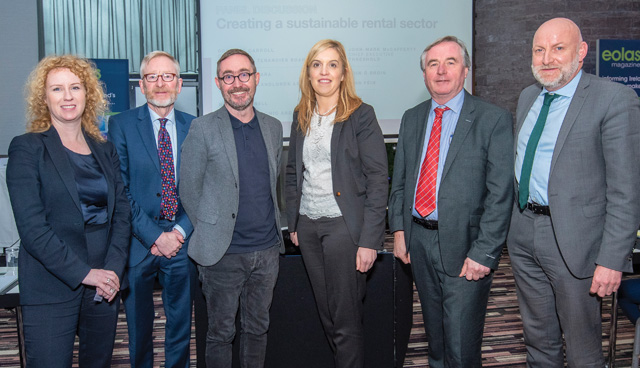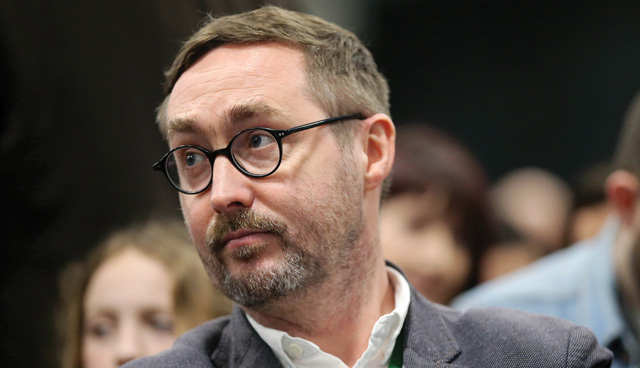
In opposition
17th May 2019
Mapping land availability
17th May 2019Collaboration is still the key: Unlocking the future for housing
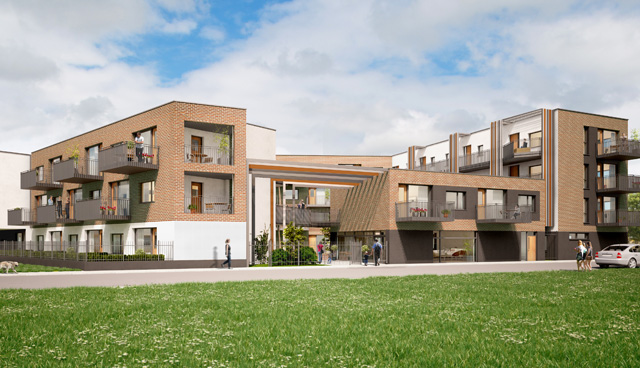
Every week the 24-hour news cycle presents stories of how the world is changing, Brexit, climate change or yellow vests. Non-stop and radical change has created an air of perpetual disruption and uncertainty. Here in Ireland, the simple predominance of an unresolved Brexit and the potential chaos associated with that makes all our futures that bit harder to forecast.
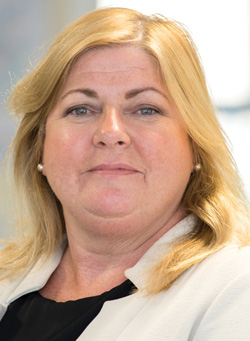
Tina Donaghy, Head of Business Development
FOLD Housing Association Ireland CLG.
Economic and political instability, changing demographics, rising populations, shifts in the socio-economic culture, rapid technological advancement, access to information and diversification are all key factors facing organisations today. These factors reinforce the requirement for businesses and organisations to be very aware of the risks that change can have and to put in place resources and structures that will prepare and manage the organisation through the change period.
FOLD an Approved Housing Body (AHB) is governed by a voluntary board of management, with a broad range of skills. Recruited from the private and public sectors, the board has been operating for many years under a robust governance framework and continues to review new methods of performance and risk management as the business evolves.
Peter Ayton, FOLD’s Chairman says: “We are very fortunate to have such a dedicated and forward thinking board. FOLD, as with many of our fellow associations, has access to highly skilled professionals who are willing to give strategic guidance and in a voluntary capacity”.
A key objective of FOLD over the last decade has been to develop strong partnerships with key stakeholders including local authorities, The HSE, funders, the Housing Finance Agency, developers, house builders and land owners. Our target area is greater Dublin and surrounding counties, including Louth and Meath for the purpose of providing quality sustainable social housing in these locations to those in need.
In mid 2016 the Irish Government, through the Minister for Housing, launched Rebuilding Ireland: An Action Plan for Housing and Homelessness. The plan provides for state investment of €5.55 billion and highlights some 84 time-bound actions with the aim to ensure sufficient, stable and sustained provision of housing that is affordable, in the right locations, meeting people’s different needs and of lasting quality.
This action plan created a new environment for those operating in the provision of Housing, by enacting Rebuilding Ireland the State changed the landscape; however, that change alone has not been sufficient to create an end to homelessness. Speaking to RTÉ in late 2017 the then relatively new Minister for Housing, Eoghan Murphy said: “Neither resources, nor money nor ideology are an impediment here. A huge amount is being done but clearly more is needed.” The Minister then also committed to holding an emergency summit with local authority chief executives to explore new options and to “join up resources”.
When FOLD started works on their award-winning project at Ballygall in the north side of Dublin’s inner suburbs in 2014, the future was just as difficult to appraise. The global economy was still reverberating with shock from the economic downturn that impacted many world economies. Nobody, in 2014 would have countenanced the positive statement regarding money and resources the Minister would make three years later. The Irish economy at the time was in a very different place than today, with the effects of austerity, mass economic migration and the lightning quick contraction in government spending all playing their part in a negative spiral. In this context FOLD was challenged to look beyond the present to an alternative future.
Complex external and internal influences, multiple accountabilities, expansive physical and organisational structures and greater exposure to risk make management during times of change extremely challenging. The provision of housing and the organisations that operate in that space are not immune. In addition resistance to change has deep roots; there is a reassuring element of control associated with keeping things “just as they are”.
The redevelopment of dilapidated ex-local authority housing stock was not without risk; turning small bedsits built in 1969, into modern, fully accessible, spacious apartments for older people was less than straightforward.
FOLD took five blocks of existing bedsits totalling 78 individual dark, cramped flats and reconfigured to deliver 50 modern, energy efficient, accessible and sustainable fit for purpose apartments utilising a new financial model and attracting private finance to fund the project. To add to the complexity the development was phased and the tenants who remained on the site during the first phase were the first to move into the new units as they completed. Following the redevelopment, there was a further phase which delivered an additional 11 newly built homes. The tenants were supported and consulted at all stages of the development by FOLD in partnership with Dublin City Council (DCC).
The success of this particular project at this very challenging time, championed in no small part by FOLD but strongly supported in full and throughout by the local authority DCC and the Department of Housing, illustrates what can be achieved by working in collaboration; in fact the wider value of the project was not just to rejuvenate the buildings and grounds.
Ballygall as a community was rejuvenated and the FOLD project and tenants continuously offer a glimpse of what the future could hold. FOLD ensured project success through the careful selection and retention of the right project partners and service providers. Whether it was the excellent design of ASI Architects, the forensic oversight of Austin Reddy and Associates or the prudent guidance and advice of Eugene F Collins, the Association was primed from the start for a positive outcome based on the value that those relationships bring.
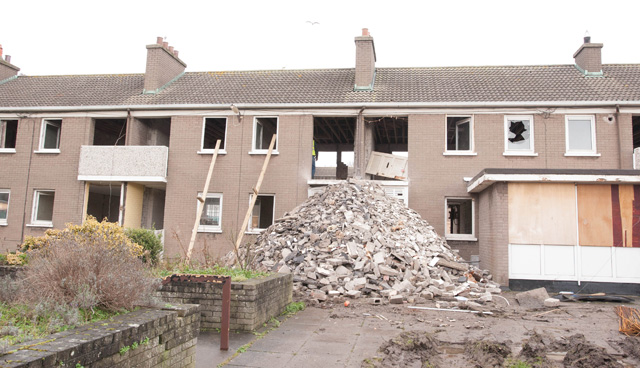
Ballygall Road East Dublin development.
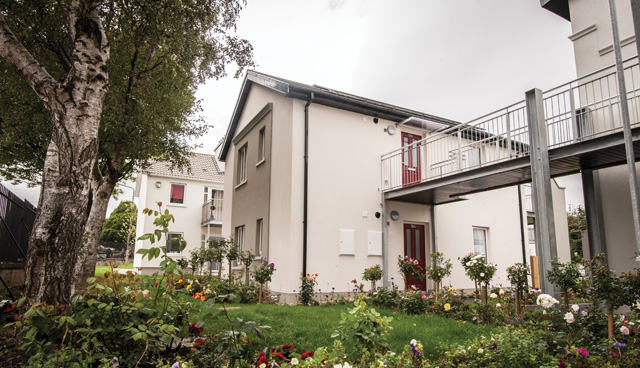
Ballygall Road East, Dublin.
By relying on tried and trusted values and principles of collaboration and communication FOLD could ignore the immediate distraction of the outside environment and the messaging from the aforementioned news cycle. The replication of these principles on subsequent projects continues to deliver successful outcomes for FOLD.
Regardless of the industry, the same fundamentals apply. It is our belief that the human component remains the fulcrum on which success is levered. It should be no surprise to commercially minded stakeholders that housing bodies are more than capable to adapt to shifting facets of the business environment in the most challenging of times.
Most AHB’s are dynamic entities in constant interaction with their human capital, their business environment and the world at large. As we approach mid-summer 2019 and given our experiences to date, there is no reason to believe that the future will be anything other than what we make of it. Where there is challenge there is opportunity, by maintaining existing and exploring new partnerships we approach the future with pragmatic optimism.
For more see:
Tina Donaghy
Head of Business Development
FOLD Housing Association Ireland CLG
Suite C, Ashtown Business Centre
Navan Road, Dublin 15
T: +353 (0)1 822 8804
W: www.foldireland.ie
E: enquiries@foldireland.ie



